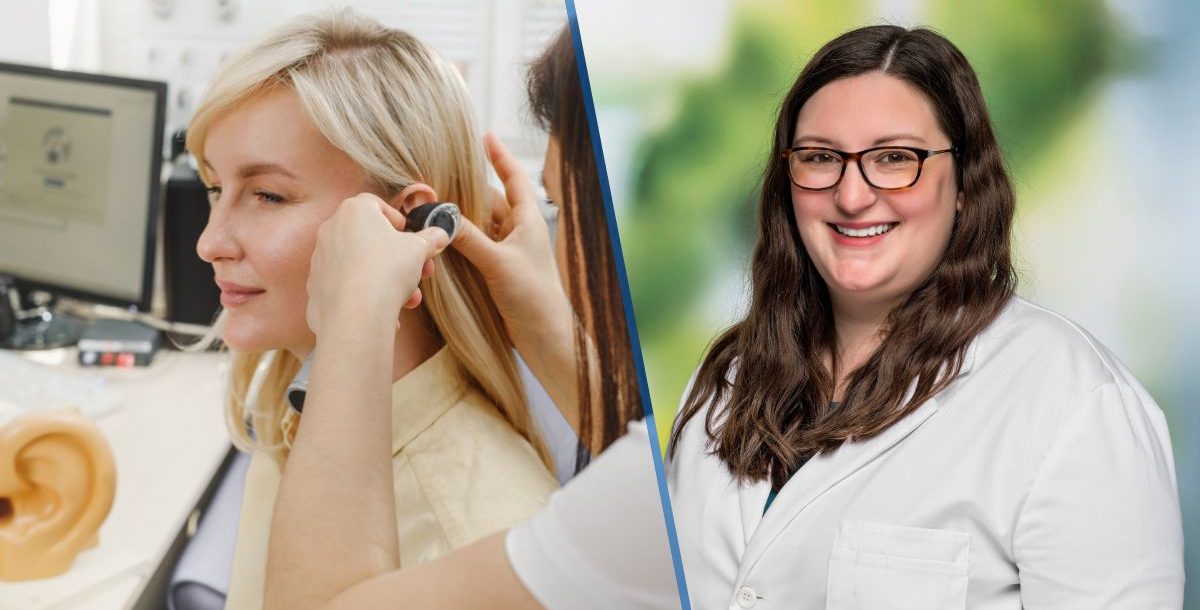Have you ever been in a loud concert or a noisy workplace and noticed that your ears felt a little muffled afterward? That’s your body’s way of warning you about potential permanent hearing damage. Hearing loss is more common than you might think, and it can happen to anyone at any age. Understanding the different types of hearing loss can help you protect your ears from harm.
Three main types of hearing loss
Hearing loss varies for each person, and doctors define it as mild, moderate, moderately severe, severe or profound. The degree of hearing loss measures how much difficulty a person has hearing sounds. While there are dozens of causes for hearing loss, three types of hearing loss exist.
If you are having trouble hearing, make an appointment with an ear, nose and throat (ENT) physician or an audiologist for testing or treatment options.
Sensorineural
Of the types of hearing loss, sensorineural hearing loss is the most common. It happens when there is damage to the inner ear or the hearing nerve (also called the auditory nerve). Inside your inner ear, tiny hair cells help send sound waves to your brain.
When these cells are damaged – often from exposure to loud noise, aging, medication or certain medical conditions – it becomes harder to hear clearly. This type of hearing loss is usually permanent, but hearing aids or other assistive devices can help.
Conductive
Conductive hearing loss is when something blocks sound from traveling through the ear canal to the inner ear. Earwax buildup, fluid in the ear from infections or problems with the small bones in the middle ear can cause this type of hearing loss.
However, a physician can often treat conductive hearing loss with medication or surgery, depending on the cause.
Mixed
Sometimes, a person can have both sensorineural hearing loss and conductive hearing loss at the same time. This is called mixed hearing loss.
For example, someone with age-related hearing loss may also have an ear infection, which can make hearing more difficult. Treatment usually involves addressing both issues, such as using hearing aids while also treating any underlying medical conditions.
How does hearing loss occur?
Hearing loss can develop gradually over time or happen suddenly. Amanda Calchary, AuD, CCC-A, an audiologist in our Greenville market, says that there are dozens of reasons people lose hearing. However, the reason for your hearing loss may be difficult to pinpoint.
“There are lots of things that can cause hearing loss,” Amanda says. “Age is one of them, or different medications you’ve been on throughout your life. The biggest one is noise exposure, but it can also be genetics or possibly other causes that we don’t fully understand yet.”
Some of the most common causes include:
- Aging: As we get older, our ears naturally don’t work as well. This is called age-related hearing loss (or presbycusis).
- Loud sounds: Long-term exposure to noisy environments – like concerts, construction sites or even loud music through headphones – can permanently damage the delicate hair cells in the ear.
- Ear infections: Chronic ear infections can cause fluid buildup in the middle ear. This leads to temporary or permanent hearing issues.
- Injury or trauma: A blow to the head or damage to the small bones in the ear can cause hearing loss.
- Certain medications: Some drugs, known as ototoxic medications, can harm the hearing nerve and inner ear.
How can I prevent hearing loss?
While some hearing loss is unavoidable, there are steps you can take to protect your ears and preserve your hearing for as long as possible.
- Turn down the volume: If you love listening to music through headphones, keep the volume at a safe level – about 60 percent of the maximum.
- Wear ear protection: If you work in a loud place or go to noisy events, use earplugs or noise-canceling earmuffs.
- Take breaks from noise: When you’ve been around loud sounds for a long time, give your ears a rest.
- Keep your ears clean – but not with cotton swabs: Earwax is normal, but using cotton swabs can push it further into the ear and cause problems. Instead, see a professional if you feel like earwax is affecting your hearing.
- Get regular hearing testing: If you notice any signs of hearing loss, don’t wait – get a hearing test to catch potential problems early.
“The biggest way to prevent hearing loss is wearing hearing protection anytime you’re going to be around any loud noises,” Amanda says. “My rule of thumb is, if you’re standing next to somebody and you need to scream for them to hear you, it’s probably too loud of a situation. You should be wearing hearing protection.”
How we can help
If you’re experiencing signs of hearing loss, it’s important to take action. You can start with your primary care physician, who may refer you to an ear, nose and throat (ENT) doctor or audiologist, or you can make an appointment directly.
Your provider can perform tests to determine the type and degree of hearing loss you may have. Then they’ll be able to make personalized treatment recommendations for you.
“Anytime you notice that you’re having trouble hearing, especially if there is a sudden change in hearing, call your doctor immediately,” Amanda says.
Learn about the ear, nose and throat services we offer at Bon Secours.





